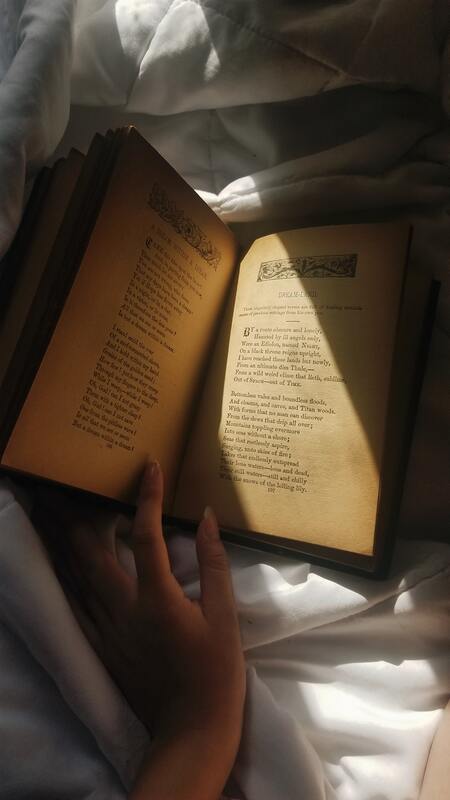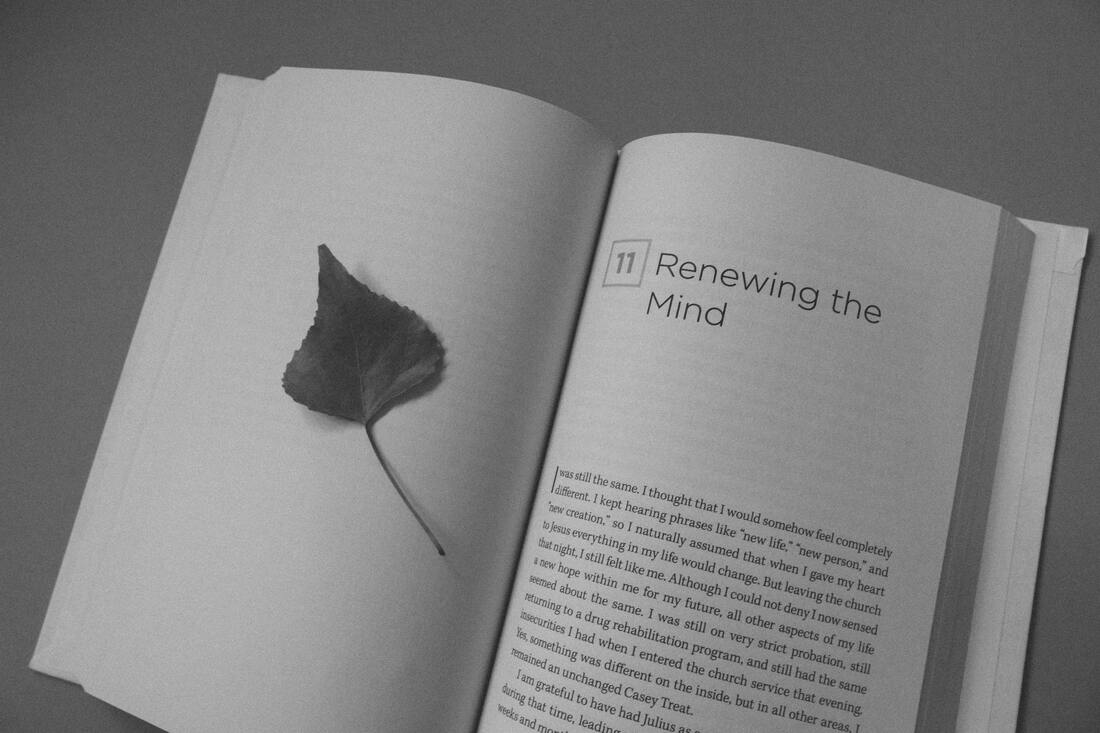|
The Breadcrumbs widget will appear here on the published site.
There’s an adage that says, “A writer is someone who puts their ass in the chair and writes.”
A writer isn’t someone who publishes, talks about their novel, pitches to agents, or what have you. Those are all things writers may choose to do, but the defining characteristic of a writer is that they sit down and gets their words on the page. End of story. You’d think this would go without saying. You’d thinkI would have learned this by now considering how much I preach the “ass in the chair” idea! But you’d be wrong. Recently, I’ve gotten off track when it comes to writing. Of course, everyone knows that you have to write to be a writer, but I’ve noticed something funny. It’s really easy to forget that writing is the main prerogative sometimes. It’s easy to start out your writing practice with goals that will simply make writing more stressful. I won’t call them “the wrong goals” – because you get to decide what you want out of writing – but I believe there are plenty of things that can at the very least hinder our writing. Like: Worrying that you won’t ever get your book published Getting ahead of yourself Spending all of your time worrying about how you’ll publish your book before you’ve even written it Overthinking the writing process Trying to take every famous author’s writing advice without getting to know your own writing style first Forgetting to stay humble/acting pretentious None of these are inherently wrong, but they’re distracting. They’ll keep us in our head instead of on the page. They’ll get us focused on our ego instead of our manuscript. My biggest hang up in my writing practice lately has been my focus on publishing. Yes, I’m giving these warnings from experience! I’ve been really lucky to have a few poems published in literary journals and a few articles published online. When everything’s going well and I’ve got pieces in the pipeline, I feel motivated, like I’m doing everything within my power to further my writing career. That’s a nice feeling and always having something in the pipeline is a good publishing strategy, but when all your efforts are geared toward getting an acceptance letter, writing isn’t the main priority anymore, publishing is. I was spending way more time thinking about how to get my work published than I was spending thinking about how to make my writing better. It bothered me that my focus had shifted so dramatically without me even realizing it. Of course, prior to my realization, I didn’t worry what my focus was on. I was simply okay with explicitly pursuing publication. There was no way I could publish without writing first, so I reasoned that writing truly was the main goal. Somewhere along the line that reasoning became faulty. All I cared about was getting my next piece of writing published. Since I’ve realized my focus was off, I’ve changed a few of my habits to begin cultivating my passion for writing again. “This is how you do it, you sit down at the keyboard and you put one word after another until its done. It’s that easy and that hard.” – Neil Gaiman My Process: The first thing I did was stop submitting my work. I’ve spent the last four months either writing, reading, or goofing off. Not searching Submittable and Twitter for places to send my work. Once I stopped spending every weekend compiling the right pieces, editing them, writing cover letters, sending them off, and anxiously checking my email every ten minutes, I realize how burned out I was on the process and how obsessive it’d made me. I wasn’t even as obsessed with writing as I was with sending my work out to editors! I wanted a break. Luckily, life got busy with other things quickly which helped me stay off Submittable and semi-cured my addiction to checking email. I’ve only recently let myself entertain the idea of submitting again, but to be honest, I’m not interested. I have different priorities when it comes to my writing practice now, like developing a writing routine, reading more, and maybe drafting a novel. I allowed myself to apply to one writing opportunity since then, but I applied because it genuinely seemed like the right opportunity for me and I felt comfortable breaking my own rule this once. I was then accepted as a 2019 Her Culture blogger! I wanted this opportunity because it would be a chill way for me to gain experience working with an editor by writing blog posts. No stress. Writing is still the main goal. Thinking about this now, I can see how the whole idea of “stressing out” about publishing can be laughable to some people. Those are probably people that have tried and true writing habits or people who simple don’t care about being traditionally published. That’s cool, but I’m not there yet. I’m still young and learning and (mostly) unpublished. I’m the kind of person who stresses about writing things. So, this post is for me and people like me. My focus moving forward is going to be redesigning my writing practice. I have a habit of writing several times a week, but it feels sporadic. This week I’m setting the goal to write every night between 6pm and 7pm. This seems doable since I have some flexibility in my schedule right now. I’m going to keep notes on how each session goes – word count, what I wrote that day, etc.— and reassess at the end of the week. Maybe I’ll blog about how my practice evolves. So, these hour-long sessions are going to be good for me in terms of the amount of writing I can get done and with a whole hour at my disposal, I can take my time and keep my desire to realign with my passion for writing at the front of my mind. I feel like this is the start of something rewarding for me, and I’m ready to get to work. … How would you describe your writing practice? Whether yes or no, I’d love to hear what you have to say in the comments. Happy writing! The Blog Tags Widget will appear here on the published site.
Tags:
The Recommended Content Widget will appear here on the published site.
The Breadcrumbs widget will appear here on the published site.
You can’t throw up a bunch of blog posts about pushing through writer’s block without God/the universe/your subconscious/whatever testing you. I haven’t written a post in a while, but I’m here now.
Maybe I don’t know everything there is to know about writing (obviously). The thing is, I’ve never had the thought, “I know everything I need to know about my writing. I know who I am.” Maybe I do know who I am, but I sure as hell don’t know everything there is to know about my craft. Maybe I forgot that I’m still learning. Just because I’ve had some success doesn’t mean I’m not shooting in the dark. In fact, just while writing this, I see how much editing I’m going to have to do for this post, and I’m reminded that I’m still rough around the edges. As a person and a writer. Thankfully, though, you’re seeing the cleaned up version of my writing! The thing about writing is the pressure to be good. No one wants to put a subpar book out there and see a million bad reviews. No one wants to see one bad review, honestly. Elitism comes into play when writers buy into the pressure. We think if our work meets the criteria of Good Writing then we suddenly become the judge for everyone else. At least, that has been my experience. A younger version of me was very judgmental toward other writers, and later in life when I was in my MFA program, I still struggled to remain nonjudgmental. Is part of it that I enjoy feeling superior from time to time? I hope not, but it’s more than possible. I can remember being a little girl and loving knowing that I was right about something, knowing that I knew something no one else knew, and the pleasure of enlightening them. All of this feels a little too personal to write. I would hate for one of my writer friends to read this and feel that I must be inwardly criticizing them all the time. This post is mostly an exploration of my ideas – I definitely don’t have a clear cut, right answer for you, although, if you do please share! One thing that I know is it’s more productive to critique your own writing that to critique someone else’s. What do I mean by that? I mean that, while reading and critiquing another writer’s work, whether it’s published or not, can teach you things about your own work, the only thing that actually changes your work for the better is when you critique it yourself and put the changes you need into place. I’m stating the obvious, but it’s easy to do the easy thing and the easy thing here is finding the faults in someone else instead of fighting the behemoth that is your own project’s flaws. As much as I needed to be reminded that I still have a long way to go as a writer, I know that my writing has improved tremendously over the past year. This blog has certainly helped me learn to be clear and cut out the extraneous (although, recently, I’ve allowed myself to be more adventurous and see where the posts go), but another big part of my improvement has been having more time to revise. While in my creative writing undergrad and MFA programs, every week was about writing the next poem, story, essay, and paper. I took a ton of workshops and forms classes, so I was constantly writing the next thing, only stopping to revise a few weeks before finals so I could turn in an edited portfolio to my professors. I was always brainstorming the next thing so revising was somewhat superficial. I didn’t have enough time to dig into my work and evolve it until summer breaks. Now that I’ve spent a year out of school, I’ve learn so much about tightening up my language, discovering the heart of the piece, and doing more of what works and cutting back on the rest. If I had to pinpoint the biggest way I’ve grown as a writer in the last year, it is in my revision techniques. I’ve learned to let myself word vomit and let the future editor me mop it up. Looking back, I’m very proud of how far I’ve come on my own just from trial, error, and revision. Sometimes I forget that I’ve got a body of work to work with, not just a few flimsy poems. Granted, I’ve got a lot more to write and in ten years I’m sure I’ll look back and wonder how I thought the writing folder on my laptop consisted of a “body of work.” But still, I’m working with what I’ve got and I’ve got something to work with, and that’s enough for me. The Blog Tags Widget will appear here on the published site.
Tags:
The Recommended Content Widget will appear here on the published site.
The Breadcrumbs widget will appear here on the published site.
 I’ve spent a surreal amount of time wondering how writers balance multiple projects. Especially unpublished authors who don’t have to meet a publisher’s deadline for each project. It seems like as soon as I get grounded in an idea that I’m fired up about, a new idea comes along that throws my brain all out of sorts. Some people call this “shiny new idea syndrome” and for me, that term sums up the issue perfectly.
Case in point: I recently started drafting a nonfiction how-to manuscript that I’m excited about. I’m treating the project as an experiment since I’ve never written a manuscript this long, but I think with editing it could be a book I’m proud to publish. I outlined it weeks ago and let the idea simmer for a while. Then a few days ago, I started drafting. Guess what happened today, literally 5 days after I started the project? I was reminded that April is National Poetry Writing Month. I’ve always wanted to participate, and I view poetry as my home genre. I am suddenly more excited about potentially completing NaPoWriMo than I am about the how-to book. Even before I did some googling and learned about shiny new idea syndrome, I knew that this new idea was going to be a distraction. That’s not to say I can’t give it a shot but diving into 30 days of poetry will certainly make me question whether the how-to book should be a priority. True, I could probably draft a poem pretty quickly each day, and I should be able to continue writing my nonfiction manuscript at the same time, but the point of National Poetry Writing Month, at least for me, is not to write down 30 half-baked poems. If I undertook the challenge, I’d want to revise my drafts over the course of the month alongside writing the daily poems. That’s a time and energy commitment. One that I’m not sure I could reasonably sign up for knowing that I’d also be writing a book. Yes, I overcomplicate things. I should just choose. The thing is, I don’t like thinking I have to pick a project or even a genre to focus on for a season. I’ve been writing long enough to know that this is how my brain works. I stupidly try to juggle a dozen things at once and drop all of them out of exhaustion. Sometimes I spend all my time trying to figure out which projects to juggle in the first place and go weeks without writing consistently. I don’t know what the answer to all of this is. I see committing to a project as a sure-fire way to finish what I start. There’s no shortage of all the ideas a creative person could dream up over time, so if I continue idea-hopping I could potentially spend the rest of my life jumping from project to project without finishing one. I know that sounds dramatic. After all, I’d probably finish one of those projects eventually. My point is that once you get a shiny new idea, the previous one seems a little dull in comparison, and if the next shiny new idea comes along in a few weeks and your first shiny idea begins to look dull too… The old ideas begin to get buried in the pile. Then what? Kristen Martin, an author who I’m subscribed to on Youtube, made a video about balancing multiple projects that I found pretty helpful. She suggests “tapping into your writer-brain” on a day to day basis to see which project you feel up to working on that day, but only picking one project per day. I like this approach. I translate it as taking a moment to listen to my creative side and see what she wants to write today. Since the only deadlines I have to work on are my own, this approach could help me be productive without putting pressure of me on to finish one project as soon as possible. Kristen Martin also discusses “compartmentalizing projects” which I take to be a form of prioritizing. Once I’m rolling on a project and feeling good about it, I need to compartmentalize any ideas for other projects and save them for later. I should write them down, maybe take some notes in a new document, but then I need to put them away and make them wait their turn. I shouldn’t give up on my current idea or put it on hold unless I’m truly stumped or just don’t think I can make it work anymore. This seems basic to me, but I have such an impulse to do start on ideas as soon as they come to me. Kristen’s advice is definitely helpful, and I’ll have to see how it fits into my own writing life over time. I trust that I can learn how to manages the ideas coming into my brain and the writing going out. It’s a matter of practice. At the beginning of writing this post, I was tempted to drop my how-to project and start writing some new poems for National Poetry Writing Month, but I guess rehashing my dilemma has made me realize that I’d much rather complete a project than hop around. So I’ll keep trudging along on my nonfiction idea, and before too long it’ll be a full manuscript. I know that consistently writing every day is what I need to focus on in this period of my writing life, and I am committed to that. Do you struggle with project hopping or shiny new idea syndrome? I’d love to know what’s helped you and what your experience has been like. The Blog Tags Widget will appear here on the published site.
Tags:
The Recommended Content Widget will appear here on the published site.
The Breadcrumbs widget will appear here on the published site.
“… a writer is the one who puts his arse in the chair when the last thing he wants to do is have his arse in the chair.” – Colum McCann, Letters to a Young Writer Telling people you’re a writer, discussing your idea for a story but never writing it down, watching a third episode on Netflix and later saying to yourself, There’s no extra time in my schedule to write! talking about writing without actually writing, fantasizing about the day when you’re famous and doing book signings, reading books about writing, criticizing popular authors and jabbering endlessly about how those writers make no contribution to the literary world while you continue to not write anything publishable whatsoever, complaining loudly outside your writer’s workshop that no one “gets” your work, refusing to revise, sharing listicles about things *only* writers understand, complaining about your workload while refusing to shift anything superfluous around so you can actually write, spending your designated writing time tweeting about being a writer, glorifying [insert canonical author’s name] while you trash modern day writers, procrastinating on writing because you’re afraid you won’t be good at it, trash talking presses that rejected you, complaining about how no one appreciates “good” art anymore, using your writing desk as a clothes hamper, tweaking your blog without ever publishing posts, playing with the font, wasting time thinking of a title before you actually write a single word, accumulating “writing” notebooks that you never fill with notes or write in, sitting in a coffee shop with your laptop open to write but scrolling through Buzzfeed instead, laying down at night and dreaming about the day you’ll hold your own book in your hands without actually ever writing.
A short list of things that will make you a writer: Putting words on a blank page. The Blog Tags Widget will appear here on the published site.
Tags:
The Recommended Content Widget will appear here on the published site.
The Breadcrumbs widget will appear here on the published site.
I’ve been writing for most of my life, but within the last two years, I’ve been published for the first time in a few literary journals. I’ve made a couple mistakes that make me cringe as I look back on them, but we live and learn. I’d like to share three things you can do to prep your poems before you submit, and hopefully you can avoid some mistakes I made.
1. Run it through a grammar check. It doesn’t matter how much you’ve edited. You’ve looked at your work so many times that your eyes might be missing something. Take a few extra minutes and pop your poem into a grammar check like Prowriting.com and double check for any simple errors like your/you’re mix-ups or grammar mistakes like plural vs. singular usage. It doesn't take that long, and if you look at your poem a few weeks down the road and realize it has an embarrassing typo in it, you're going to wish you'd taken the extra step and used a grammar check website up front. Granted, a grammar checker is going to flag a lot phrases in a poem that are correct because we often play with wording in poetry, but it’s easy to spot when the computer is flagging a sentence fragment (usually a line break) or when it’s flagging an issue with correct pronoun usage. I stand by this rule because I know from experience how frustrating it is to send your work out to five lit journals, get rejected by all of them, and find out later there were typos in my poems that I had somehow never caught in my dozens of revisions. If your work has a lot of typos in it, you’re making it easier for editors to write you off because it seems like you’re not really trying. In some cases, your writing may withstand the test despite having several typos, but why risk it? Run it through a free grammar check and then let the editors decide. 2. Double check the submission guidelines. You don’t want to look like you weren’t interested in the journal and didn’t take time to check that you formatted your work as per their request. You don’t want to submit and then find out that the journal is actually publishing a themed journal that your work doesn’t fall under. You don’t want to waste three months waiting for a reply only to get a rejection because you didn’t do enough research up front. Editors know that not every writer who submits their work is going to be super well acquainted with the publication, but they do expect you to look at what’s available – submission guidelines, about pages, and sometimes previous issues posted on their website - and submit with that information in mind. 3. Copyedit yourself. Copyediting for a poem means making sure the information is consistent throughout. This is something a grammar checker won’t catch. That means if the beginning of your poem begins with night time imagery but ends with imagery that references the daytime, you may want to make sure that the inconsistency is intentional. I say this from experience. If you find inconsistencies in your poem and decide you like the poem that way, then no big deal, but double check yourself to make sure you didn’t just accidentally change the time of day during a rewrite. It’s a pain in the butt to realized you submitted the poem to multiple places with errors, and even if the poem is accepted, it’s embarrassing to correct mistakes after the fact. Plus, once it goes into print, it is final, and sometimes due to deadlines, poems are printed with typos intact because proofing was done so quickly. Again, I’ve seen it happen. Copyedit yourself so you don't find an embarrassing typo in print later! These are three tips I try to live by when it comes to sending my work out! I hope it gave you some useful ideas about prepping your work for publication. If you have more tips, tell me about them in the comments so we can chat! The Blog Tags Widget will appear here on the published site.
Tags:
The Recommended Content Widget will appear here on the published site.
The Breadcrumbs widget will appear here on the published site.
5 Places to Submit your Poetry2/24/2018 It can be difficult to find literary journals to submit your writing when you're first starting out in the publishing process, and it can be just as hard when you've been submitting for a while and feel as if you've exhausted your options. I want to share a quick list of places you can send your poetry. These journals either have cheap reading fees or no fees at all and accept submissions year round. I've written posts like this before that focused on literary journals and magazines that accept submissions from multiple genres, but today, I wanted to do a post specifically for the poets out there looking for places to submit. Let me know in the comments where you've submitted your writing lately, or whether you're just starting the journey to publication! 1. Conduit Asks for 3-5 poems. Looking for, “… unpublished poetry that demonstrates originality, intelligence, courage, irreverence, and humanity.” $3 fee. Submissions accepted year-round. 2. The Same Send up to 6 poems. “We believe that the more things change, the more they stay the same…” Exclusively publishes female writers. $3 reading fee. Submit year-round. 3. Ellis Review 3-5 previously unpublished poems. “We believe the best poems often share several characteristics that can be summed up in intentionality.” No fee. Submit year-round. 4. Rascal Send up to 7 pieces, max 15 pages (accepts poetry and poetic prose). “We use the term ‘poetry’ loosely; if it's ‘poetic’ in any sense, try us.” No fee. Pays for accepted poems. Submit year-round with short response time. Virga Magazine Submit 3-5 poems. They, “… hope to publish poems that take some of the sky down to the page.” Exclusively publishes journal. $2 reading fee. Year-round reading period, bi-annual publication.
The Blog Tags Widget will appear here on the published site.
Tags:
The Recommended Content Widget will appear here on the published site.
The Breadcrumbs widget will appear here on the published site.
I just got 2 rejection letters within five days of submitting to the journals. I received those letters within a week of each other.
Usually submission responses take several weeks or months to receive, so when you get a rejection letter within a few days, it can catch you off guard. I worked on my university’s lit journal for a semester, so I know that it’s easy to quickly read a submission and make a quick decision about whether it belongs in your journal or not, but it still stings (a lot). There’s nothing menacing about it. The piece works or it doesn’t. Really the only reason my teammates and I ever deliberated whether we should accept or reject a piece was because there were so many of us and doubt creeps into the decision making process when so many people with different tastes are in the same room. At the end of the day, though, I knew the pieces were either right for our journal or they weren’t. There was only so much space in our print version, so there wasn’t room to accept poems that fell in the grey area. That’s not to say that we only received a few great poems to put in the journal. We received a ton of great pieces, but they didn’t always fit the theme and feel of our journal. Recently, I read Big Magic by Elizabeth Gilbert, and there’s a chapter that focuses on how Gilbert dealt with rejection, especially in her early years of writing. She describes using a “boomerang” technique to deal with rejections, which I have discussed in previous posts. She got the rejection letter and immediately took her manuscript out, stuck it in another envelop and sent it out to a different magazine. She did it automatically. Almost without thinking. Later in the chapter, she encourages writers to do what they need to do to deal with rejection (let themselves feel sad for a little while, get angry, whatever), but she encourages writers not to waste too much time before getting back to work, either by revising or sending their work right back out into the universe. I’m trying to adopt this method, but so far it’s been a little more difficult than I thought. Finding places to submit to takes a while. You want to find a place that you’ll be happy to be published with and not just any old place that’s open for submissions. It also helps if your work just seems right for the magazine, either because you’ve looked into what they’ve published over time and it seems up your ally or you’ve read their about page and really feel pulled toward their publication. That process takes time, but it’s meaningful. I’ve never liked the idea of sending my work out at random where it could potentially be accepted, but not really appreciated or understood. Granted, it’s hard to know which places are going to treat your work well upfront, but knowing I have the publisher’s respect is important to me. Important in an “I’m not just random content for you to throw up on your website,” way. For that reason, I’ve been a little slow to send my work back out, but I am committed to continue. I really believe that 98% of the work you send out is going to be rejected whether it’s good or not (because, again, there’s only so much space), but you keep going so that you can see the 2% that does get published. It’s not about accolades or recognition for me, (although to each his own). It’s honestly about having the chance to tell people a story. Storytelling, whether the medium be fiction, poetry, or nonfiction, is an art form I respect deeply and want to engage in. That’s why I keep writing despite the rejection letters, despite the negative workshop comments, despite people in my life just not getting it. I still want to be a writer, see where my stories take me, and see what readers the stories pick up along the way to enjoy the ride with me. We say that writing is so solitary, so lonely, but to me writing is all about people. You share something you worked hard on, and other people engage with your art whether it’s as an editor, or a reader of a journal, or someone reading this blog. Rejection may sting, but writing doesn’t. As difficult as starting out as a writer is, I hardly feel alone. I hope you don’t either. Feel free to leave your thoughts in the comments. Let’s encourage each other. The Blog Tags Widget will appear here on the published site.
Tags:
The Recommended Content Widget will appear here on the published site.
The Breadcrumbs widget will appear here on the published site.
Sometimes you must create inspiration instead of waiting for it to show up on your doorstep. I find that I am most inspired after I start writing. If I wait until I’m feeling motivated or mused, I’ll sit in front of my computer for most of the day and not write a word. I still have bursts of creativity and moments of intense motivation at random, but for the most part inspiration finds me when I sit down and get started without it.
Being a writer sometimes means writing on demand. You have deadlines, and you have to meet them if you’re going to get paid and published. That doesn’t mean that creativity goes out the window or you have to write a perfect first draft, but you do need write something and keep working on it and if you want to publish, eventually send it out into the world. Any career or even a hobby requires follow through. Being a writer and wanting to write are not one in the same. The difference between “wanting to be” and “being” is action. Write the thing you want to write even if you aren’t feeling creative. First drafts are supposed to be messy. Just get the words out. I’ve always heard getting started is the hardest part. That observation is true of a lot of things, but I find that it’s still very true for my writing. The most difficult task is opening my laptop and clicking on the MS Word app. I don’t know why. Maybe I’m too used to passive entertainment and switching gears is difficult. Maybe I forget that the piece isn’t going to write itself. I’m not sure honestly. What I do know is the difference between a piece being written and a piece not being written is action. I’m realizing that I need to focus a little more on my own follow through in the coming weeks. It’s been difficult between having multiple jobs and submitting my work to journals to also force myself to get started on all the creative projects bouncing around in my head. I’m determined to make it all happen, though, because I love my creative work. It energizes me and makes me happy, and what better way to spend my time than pursuing more of that? The Blog Tags Widget will appear here on the published site.
Tags:
The Recommended Content Widget will appear here on the published site.
The Breadcrumbs widget will appear here on the published site.
Dreams for 2018 | My Writing Goals1/12/2018 When other people talk about their goals, it motivates me. Being around friends trying to change their lives has always given me a reality check. It makes me think whether I’m taking active steps toward my own goals. It helps me realize that I can do the same things my friends are doing. With that in mind, I hope my goals give you ideas or just help you stay motivated during this first month of the new year. Use the one rejection in, one submission out ruleI learned this from Elizabeth Gilbert in her book Big Magic, although she didn’t call it a rule. She says back when she was still an unpublished writer and rejection letters came in, she took her story out of the envelope, read it over, decided whether to change it, and then resubmitted it. I appreciated the urgency she placed on getting her work back out in the world. She felt disappointed when she opened the rejection, but she didn’t wallow. She revised, then submitted her work elsewhere. As soon as a rejection comes in, I’ll send my work right back out, and, eventually, some of those letters will turn into acceptances instead of rejections. Branch into freelancingI’ve always been on the fence about article writing. I wasn’t sure if it was my style or if I could be formal enough. This blog has made me more confident in my abilities, though, and I want to branch into writing for websites. I have a few websites on my list along with article ideas I’m drafting, My goal is to have one article submitted by the end of January. Learn how to plot a bookMy biggest hang up for writing fiction is plotting. I’ve researched a few books to help me, and I’d like to read those by the end of the year and maybe even draft a novel. This, funnily, is one of my more difficult goals for the year because I’m primarily a poet, not a fiction writer. Make sure I’m submitting to journals and magazines I’d be proud to be inThis seems like a no-brainer, but after you’ve gotten a lot of rejection letters (like we all do), it's tempting to throw your work out at random and hope it sticks. Not only is this a bad method to find magazines that are interested in the themes you’re writing on, it’s also a bad method for finding publishers who care about your work. I want the places I'm published in to give my work the right attention. My goal this year is to make sure every single place I submit to is one that I will be very proud to point at and say, “They liked my work!” Write every single dayThis is a rule I’ve always tried to follow, and it’s one that defends me against writer's block because it teaches me that I don’t always need the inspiration to write. This year, I’d like to continue with this rule. In the past, when I’ve gone through busier seasons of the year, it’s been easy to push writing to the side because it could wait. I don’t want to do that anymore. I want to carve out 30 minutes to an hour every day to write, even if all I can do is put a few lines down in my journal. An important part of a writer’s career is having a nice backlist of work to draw on, and I want to build mine up.
January can be an overwhelming time knowing that the whole year is ahead of us, but it can also be a time of happy expectation if we let ourselves dream. Those are my writing goals for 2018. Let me know what yours are! The Blog Tags Widget will appear here on the published site.
Tags:
The Recommended Content Widget will appear here on the published site.
The Breadcrumbs widget will appear here on the published site.
I set a Goodreads goal to read 24 books in 2017. I read 61 as of mid-December and the year isn't even over yet! A lot of people want to increase the number of books they read in a year. There's that saying, "Successful people read 50 books a year, and you should too if you want to be successful!" I'm not sure if I believe that completely (it depends on whether the books you read are helping you develop as a person!), but I always want to read more. Reading and writing are my passions in life and have been for as long as I can remember. Storytelling has a special reverence in my heart. So naturally, I make reading and writing a priority in my life. As a writer, reading is necessary to my success. It's one way that I hone my chops and distinguish my voice against other authors. To other people having any goals about reading might seem superfluous. I get that. But even if you don't see reading as a necessary part of your life, you might find that experiencing a few books adds a lot of meaning to your life anyway. Whether you're already a ravenous reader or would just like to add reading to your routine, I'd like to share with you the 5 ways in which I read more books than ever this year. I hope they help spark some ideas for your own reading habits! 1. I took advantage of my library's audiobooks. I feel like this is a cliched answer - one that every post like this would have in it because audiobooks seem like an easy fix for reading more, but in complete honesty, audiobooks make me happy and I highly recommend them. There are some books I wouldn't have read if I hadn't downloaded the audiobook. For instance, I had a big issue starting and finishing the Divergent books in the print editions. The voice of the story fell flat for me until I heard Emma Galvin reading it. I fell in love after that, and Tris (the main character) is now one of my favorite heroines. Of the 61 books I've read so far in 2017, 25 of them were audiobooks. That's nearly half. In previous years I have appreciated and utilized audiobooks, but never THAT many because I couldn't always find affordable ones. This year that changed when I began using Overdrive which is an app that allows me to download audiobooks from my library for free. I was able to use audiobooks whenever I wanted without worrying about a budget. Signing up for Overdrive was definitely something that boosted my reading this year, and I'm super grateful that my library uses the service. I have to acknowledge that some people just don't like audiobooks or aren't interested in them. If that's the case, then there's no need to force yourself to listen. I would recommend checking out an book read by the author or an audiobook read by a cast of characters rather than just one narrator, thought, before you completely write off audiobooks! But to each his own. 2. I actually did the school readings.For once, I committed to actually doing the every reading for my English classes. Since I count any book I read towards my Goodreads challenge even if it's for school, this boosted my number quite a bit. I like making my time effective and killing two birds with one stone, so this commitment worked for me. An alternative to this, if your major doesn't involve reading novels or if you're not in school, would be taking advantage of your library and using the return dates for the book you borrow as your own personal goal date for having it read. This is a great way to discover books you haven't seen before and save money while meeting your Goodreads challenge. 3. I read what I want. Period.That means if I wanted to read Scott Pilgrim and count it toward my reading challenge, I could. If I wanted to finish the Harry Potter series before the end of the year even though each book is over 600 pages, I could. It's my challenge, and I get to decide what counts. I follow a lot of BookTubers and book bloggers who seem to psych themselves out about counting anything "too easy" for their challenge and that makes me sad. My motto is, as long as you're getting what you want out of your reading/challenge for the year, then more power to you. Do what you want not what you "should do." Period. 4. I quit stressing about page counts. This reason goes with number 3. Not only do I make the challenge, but I also don't have to feel any pressure to read a certain kind of book just because I set a goal for myself. Sure, it's great to get to a certain number of titles for the year, and shorter books make that goal more attainable, but it's even better to read books you actually like no matter what the length of them is! I don't read shorter books just for the sake of boosting my challenge anymore (although I have less tolerance for 400+ page books in general), and that has prevented many reading slumps this year. After marking another book as read, I want to pick up my next book. I'm excited about reading and about finding good stories because I'm not slogging through a novella I don't care that much about just because it'll help tick another book off my list quickly. 5. I read different topics, genres, and authors.Before this year, I primarily read YA novels. I still love a good YA, but I've branched into self-development, classics, and literary fiction more than I have before. It has made all the difference. For starters, I don't have a problem switching between several books if they're on different topics. That means when my attention span starts to wane, I can take a break with a book on another topic. I like to have at least one nonfiction and fiction book going at one time now, but even those books are more varied by the subgenres I pick up. I've read about politics, picked up a sci-fi, studied a ton about finance, and got into more classics than before. Changing up what I read has been a great way to stay excited about each book I read. I feel like each new book I pick up has a new idea to challenge me or teach me, and that's one thing that keeps me reading. Sometimes it feels like I could talk forever about books and reading! That's one reason I created this blog. I wanted to share this passion with other people and be able to talk to people who are just as passionate about literature as me. Thanks for your readership and for taking a little time to read what I write.
Also, let me know in the comments if you see value in setting reading goals or if you prefer not to! I'm interested to hear your thoughts. The Blog Tags Widget will appear here on the published site.
Tags:
The Recommended Content Widget will appear here on the published site.
The Breadcrumbs widget will appear here on the published site.
1. The Poet's Haven Digest: Darker Than Fiction The Poet's Haven publishes poems and stories by writers all over the experience spectrum. From beginners to well accomplished writers, everyone is encouraged to send their work. There are several categories you can submit to, each dealing with its own themes. 2. In Layman's Terms In Layman's Terms is a digital lit journal published twice a year. Creative nonfiction writers and poets are encouraged to submit work pertaining to the current theme. Check the About and Submit pages for info on the current theme. 3. Ruminate Magazine Ruminate is a literary magazine with a focus on mindfulness in the arts. Writers from all walks of life may submit their nonfiction or poems for consideration (fiction is also normally accepted but currently closed). Follow the link and scroll down to general submissions for more information on submissions to each genre. 4. The Collagist The Collagist is an online literary journal publishing short fiction, poetry, and creative nonfiction. In the submission manager, TC describes their taste as "idiosyncratic", and previously published work can be found on their website. 5. The Meadow The Meadow is a literary journal published by Truckee Meadows Community College in Reno, Nevada. Writers can submit their work between September 1st and February 1st each year to be considered for publication in the spring. Writers new and old are welcome to submit.
The Blog Tags Widget will appear here on the published site.
Tags:
The Recommended Content Widget will appear here on the published site.
The Breadcrumbs widget will appear here on the published site.
5 Tips to get over Writer's Block11/18/2017 Writer's block is one of the most annoying and dreaded conditions a writer could face. We live in an age in which it's easy to have your creative stores drained by the stress of the day and to feel much too tired to dive into a new artistic project. Writer's block often stems from a lack of inspiration, and it can be incredibly frustrating waiting for ideas to come to you rather than creating them. In my own writing life, I've developed certain habits that help me write better, regain inspiration, and bypass writer's block, and I decided to post them here just in case they help someone else. There are dozens of ways to go about getting your inspiration back, but here I've focused on the techniques that only require your pen, and a notebook or laptop. 1. Don't edit in the middle. I change very little about a poem or story while I'm still writing it. The most important thing to me is that I get the story of the poem on paper first. Editing switches my mind out of a creative mode and into a more critical one. It's difficult to polish a piece of writing if I don't have the whole story down first with all its imperfections and inconsistencies. When I say "story" I'm talking about the point or theme of a poem as well. This tip applies to all kinds of writing. Focus on telling your story first and edit afterward or (even better) when you've had time to let the story sit in the back of your mind for a while. 2. When you're stuck, focus on the senses. Sensory details add a lot of depth to descriptions. If you're stuck, it can be helpful to list the five senses and think of a detail to go with each. Whether your list pertains to senses you're experiencing as you're trying to write the poem (sights in the room or smells in the café your writing in, for instance) or whether they're senses that apply to the situation you're writing about, this exercise can be a good way to tap into poetic language again and boost your creativity. Think about how those details may play into your poem. What train of thought does it put you on? Did you notice any strange descriptors that came to mind or poetic devices you used such as simile or metaphor? Consider using the descriptions you come up with or just use this technique as a way to get started writing. 3. Make a list. This technique really works if I have no idea what to write about or if I know the topic I want to focus on but I'm really struggling to string the sentences together. If I want to write about a particular incident, I make a list of things I remember or thoughts I have about the situation even if the items don't seem especially useful. I just write them down. If I have no idea what to write about in the first place, I may just write a list of things I've noticed lately or thoughts that cross my mind in a stream of consciousness style. Writing a list in a stream of consciousness style usually helps me find something that interests me, and I write more about it to develop my idea further. Before I know it, I've written a decent chunk that can be turned into a creative piece in the future. 4. Write every day. This one seems counter intuitive, I know. Writing each day can make you wonder if your depleting your idea tank and wasting your time if you're not inspired. I think the opposite is true. When I write consistently, even if it's just for 20 minutes a day, I find that more of my ideas make it on paper. I don't procrastinate on getting started on my ideas because I know I'll have to write something to check off writing for the day. I also find that just concentrating on getting my writing done for the day pushes me not to edit my writing while I'm still working on it. All of this combined makes for a really effective, brief writing session. Even if I write something that I'm not happy with, I always get the bare bones of an idea down to be revised later, so it still pays off for me to write despite a lack of inspiration. 5. When in doubt, skip around. There is no rule that you have to write your book, article, poem, whatever in a particular order. Sometimes it's easier to start with the idea that jumps out at you the most and just rearrange your work later. If a particular scene or line is pulling at your attention, don't delay! Go ahead and start there if you want to. You're allowed to do whatever you want. It's your art. You may also be worried that skipping around requires more editing. I find that editing a story or poem that's written out of order isn't that difficult unless I've somehow written the same scene more than once and have to figure out which details to keep or move. I don't like doing the work twice, but that rarely happens, so I still definitely recommend this technique. Writer's block sucks no matter how you spin it, but it doesn't have to be your demise. Don't let your art live or die by the muse. You can make anything happen if you stick to it and do a little bit of work every day. If you've ever struggled with writer's block, feel free to leave a comment and tell me about it and/or how you got your inspiration back. The Blog Tags Widget will appear here on the published site.
Tags:
The Recommended Content Widget will appear here on the published site.
The Breadcrumbs widget will appear here on the published site.
NaNoWriMo with a Non-Novelist11/13/2017 What is NaNoWriMo? |
AuthorPoet. Reader. Lifelong Student. Archives
February 2023
Categories
All
|
For Readers & Writers
We found
results for you
We've got nothin'!













8/12/2019
2 Comments